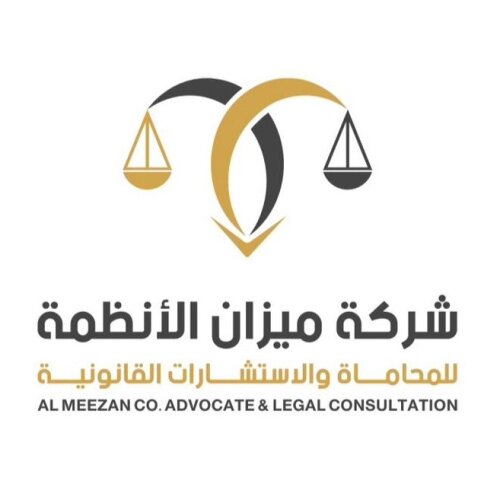Best Equity Capital Markets Lawyers in Makkah
Share your needs with us, get contacted by law firms.
Free. Takes 2 min.
List of the best lawyers in Makkah, Saudi Arabia
About Equity Capital Markets Law in Makkah, Saudi Arabia
Equity Capital Markets (ECM) refer to platforms and legal frameworks that facilitate the raising of capital through the sale of shares and other equity-linked instruments. In Makkah, Saudi Arabia, the ECM landscape is shaped by national legal frameworks, including the Capital Market Law, and is supervised by the Capital Market Authority (CMA). Local businesses, both public and private, can access capital by issuing shares through public offerings or private placements, subject to strict regulatory compliance. The growth of the Saudi Arabian economy and ongoing reforms under Vision 2030 have enhanced the significance of ECM, providing new opportunities for businesses and investors in Makkah.
Why You May Need a Lawyer
Engaging in Equity Capital Markets transactions often involves complex legal requirements and regulatory obligations. You may require a lawyer in the following situations:
- Preparing for an Initial Public Offering (IPO) or listing on Tadawul, the Saudi Stock Exchange
- Complying with Capital Market Authority rules for disclosure and transparency
- Negotiating or structuring private placements or rights issues
- Advising on cross-border investments and foreign ownership regulations
- Drafting or reviewing shareholder agreements and corporate governance documents
- Dealing with regulatory investigations or enforcement actions
- Resolving disputes among shareholders or with regulatory bodies
Local Laws Overview
ECM activities in Makkah are guided by the Capital Market Law enacted by royal decree and overseen by the Capital Market Authority. Some key legal aspects include:
- Strict requirements for company disclosure and financial transparency
- Mandatory approvals from the CMA for public offerings and listings
- Foreign investment regulations, which restrict non-GCC ownership in certain sectors
- Periodic reporting obligations for listed companies
- Anti-market abuse and insider trading prevention measures
- Corporate governance standards for listed entities
- Sharia compliance, ensuring all transactions align with Islamic finance principles
It is essential for entities in Makkah to align their capital raising activities with local legal requirements to avoid penalties and ensure investor confidence.
Frequently Asked Questions
What is the Capital Market Authority (CMA) and what does it do?
The CMA is the regulatory body responsible for overseeing equity capital market activities in Saudi Arabia, including licensing, supervising market practices, enforcing compliance, and protecting investor interests.
Can foreign investors participate in ECM in Makkah?
Yes, foreign investors can participate, but their involvement is subject to specific legal restrictions and sector limitations, requiring adherence to the Foreign Investment Law and any sector-specific regulations.
What is an IPO and how is it regulated in Makkah?
An IPO (Initial Public Offering) is when a company offers shares to the public for the first time. In Makkah, it is regulated by CMA, which has strict criteria for approvals, disclosures, and ongoing reporting.
What are the ongoing obligations for listed companies?
Listed companies must regularly disclose financial statements, material information, and comply with corporate governance requirements set by the CMA.
How does Sharia law affect ECM transactions in Makkah?
All transactions must comply with Sharia principles, impacting the structures of offerings, prohibiting interest, and governing contracts and transactions accordingly.
What are the penalties for non-compliance with ECM laws?
Penalties include fines, suspension of trading, delisting, and potential criminal liability for serious violations such as fraud or insider trading.
Is legal representation mandatory for ECM activities?
While not always mandatory, legal representation is highly advisable due to the complexity and high value of ECM transactions.
How do I prepare my company for a public offering?
Preparation involves financial audits, corporate restructuring, regulatory filings, and the drafting of prospectuses, all of which should be guided by experienced legal counsel.
What rights do minority shareholders have?
Minority shareholders are protected under Saudi and local laws, ensuring access to information, voting rights, and remedies in case of unfair treatment or oppression.
Can disputes arising from ECM transactions be resolved locally?
Yes, disputes can be addressed through local courts, the Committee for the Resolution of Securities Disputes, or, if agreed, through arbitration.
Additional Resources
Individuals and businesses seeking to understand or engage in ECM in Makkah may consult the following resources:
- The Capital Market Authority (CMA) - Offers guidelines, forms, and regulatory updates
- Tadawul (Saudi Stock Exchange) - Provides listing rules and issuer support
- Ministry of Commerce - Corporate registration and licensing requirements
- Saudi Arabian General Authority for Investment (SAGIA) - For foreign investment-related queries
- Law firms specializing in corporate, commercial, and securities law
Next Steps
If you need legal assistance in Equity Capital Markets in Makkah, consider these steps:
- Identify your specific needs, such as IPO preparation, regulatory compliance, or dispute resolution
- Gather any relevant documents, such as company incorporation papers, financial statements, and previous shareholder agreements
- Consult a qualified local lawyer experienced in ECM matters
- Discuss your goals and challenges with legal counsel to receive tailored advice
- Stay updated with CMA announcements and comply with all disclosure obligations
- Consider ongoing legal support to manage compliance and corporate governance effectively
Timely legal advice can help you navigate the complexities of Equity Capital Markets in Makkah while protecting your interests and ensuring regulatory compliance.
Lawzana helps you find the best lawyers and law firms in Makkah through a curated and pre-screened list of qualified legal professionals. Our platform offers rankings and detailed profiles of attorneys and law firms, allowing you to compare based on practice areas, including Equity Capital Markets, experience, and client feedback.
Each profile includes a description of the firm's areas of practice, client reviews, team members and partners, year of establishment, spoken languages, office locations, contact information, social media presence, and any published articles or resources. Most firms on our platform speak English and are experienced in both local and international legal matters.
Get a quote from top-rated law firms in Makkah, Saudi Arabia — quickly, securely, and without unnecessary hassle.
Disclaimer:
The information provided on this page is for general informational purposes only and does not constitute legal advice. While we strive to ensure the accuracy and relevance of the content, legal information may change over time, and interpretations of the law can vary. You should always consult with a qualified legal professional for advice specific to your situation.
We disclaim all liability for actions taken or not taken based on the content of this page. If you believe any information is incorrect or outdated, please contact us, and we will review and update it where appropriate.












